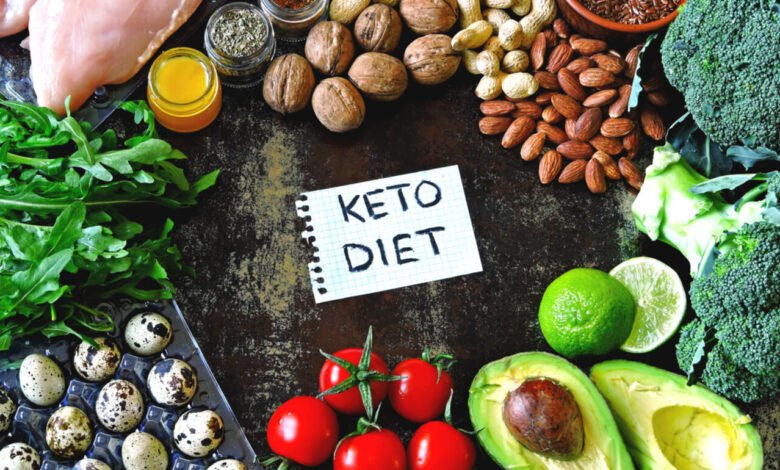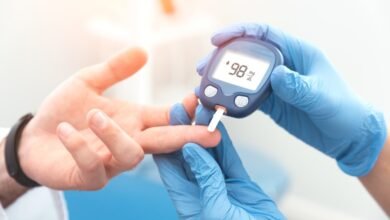How Does the Keto Diet Work and Are They Safe?

Does the Keto Diet Work and Are They Safe? is a powerful way to lose weight, increase energy, and even reduce the symptoms of some medical illnesses.
Are you looking for a new diet or nutrition plan to help you feel better overall, reduce weight, have more energy, resolve a dietary-related health condition, or lose weight? You might have found the keto diet by searching. How Does the Keto Diet Work and Are They Safe?
However, other nutritionists aren’t sure if it’s a good long-term diet to follow. Let’s examine the keto diet in more detail and see if it is the best eating plan for you.
What is the keto diet?
To begin with, what is the keto diet?
Basically, it’s a diet that emphasizes eating lots of fat and a few carbohydrates. As a result, it has a variation on Atkins and other low-carb diets.
After the initial phases of the Atkins plan, you gradually increase your carbohydrate intake. You are also free to eat however much protein you want. However, the keto diet only allows you to consume 20% of your daily calories from protein while maintaining a low carbohydrate intake. (More details on that are below.
Read More: Five Advantages of Dry Brushing for Health
How does the keto diet work for weight loss?
Your body enters a state known as ketosis as a result of the keto diet.
Your body naturally enters that metabolic state where it burns down fat and produces ketones for energy.
When you don’t consume a lot of carbohydrates, your body switches to fat storage in place of the glucose found in carbohydrates, which it would normally use as energy. This is how weight reduction with the keto diet occurs.
This state of ketosis is not reached by your body instantly. Your body runs out of its usual fuel in three to four days, at which point you enter ketosis and begin using fat as energy for daily activities.
The basic principles of eating “keto”
This entails avoiding foods heavy in carbohydrates, such as pieces of bread, pasta, potatoes, sweets, and the like. Sorry, no alcohol is also involved!
For comparison, a half baguette or a cup of rice has 50 grams of carbohydrates.
To put it another way, it doesn’t take much food to reach that carbohydrate limit.
Therefore, to keep on track while following a ketogenic diet, it’s imperative to schedule meals, snacks, and daily carbs in advance.
what can you eat on the keto diet?
You’ll mostly want to eat meals that are high in healthy fats when you’re “eating keto” (think unsaturated fats like omega-3s). The list includes items like nuts, seeds, cheese, yogurt, butter, and avocados. Foods rich in high-quality protein, such as eggs, poultry, fatty fish, and meat from humanely raised animals, are also essential.
Generally speaking, the keto diet entails eating a diet that is roughly 70% fat, 20% protein, and 10% carbohydrates.
What does the keto diet look like in practice?
So, how does a day of eating on the keto diet truly look?
Although it’s undoubtedly very different from the typical carb-rich diet that many of us are used to eating, adhering to the keto diet offers some general health advantages, which we’ll go over below!
health benefits of the keto diet
So, how does a day of eating on the keto diet truly look?
We’ve already discussed how popular keto is for weight loss, but medical professionals have also discovered that it offers a lot of additional health advantages. The following are some advantages of following a low-carb diet (such as the keto diet):
- Weight loss: The keto diet is a powerful strategy to burn fat, alter body composition, and shed pounds because it enables the body to use stored fat as energy. (Along with preserving a healthy body weight.
- Treatment of diabetes and prediabetes by blood sugar control: Blood glucose levels are excessively high in people with diabetes (or prediabetes) because they have a problem either making or using insulin. By increasing insulin sensitivity and lowering blood glucose levels, a ketogenic diet can aid with this.
- Defends against heart disease: A ketogenic diet has been associated with greater levels of HDL cholesterol, the “good” cholesterol that reduces your risk of heart disease and stroke. You can also improve heart health by lowering your blood pressure and body fat.
- improves brain health: It’s a popular myth that carbohydrates are necessary for the survival of your brain. Actually, this is untrue! The brain can get a tonne of energy from ketones. (This is also one of the advantages of intermittent fasting for health.) Additionally, studies demonstrate that a ketogenic diet can lessen Parkinson’s, epilepsy, and Alzheimer’s disease symptoms.
- Researchers are still looking into this one, but some believe a ketogenic diet may aid in the fight against cancer.
- Clears acne naturally: Your food is frequently directly related to adult acne. According to studies, cutting back on carbohydrates will help your gut bacteria stay healthy and lessen those annoying breakouts.
- PCOS (polycystic ovarian syndrome) is a hormonal disorder that causes irregular periods, excessive body hair, and unexplained weight gain in women. A ketogenic diet can ease these symptoms.
So, that all sounds great, but are there any drawbacks to the keto diet?
drawbacks of the keto diet
The keto diet may not be the greatest for a long-term wellness strategy, despite the fact that it can undoubtedly have some positive health effects for short-term use.
Some people who have been following the ketogenic diet for a while may develop kidney stones, extra liver fat, or vitamin deficiencies.
Obviously, the “healthiest” diet for each of us depends on our bio-individuality, thus not everyone should follow the keto diet. what counts is how well it works for your body.
Keto flu symptoms include:
- feeling worn out
- constipation
- headaches
- dizziness or vomiting
- not being able to work out
Regarding the final point, athletes or anybody trying to gain muscle should avoid the keto diet. You’ll often want a higher protein-heavy diet if you want to gain muscle or engage in demanding exercise.
so, is the keto diet healthy?
Having stated that… Is a ketogenic diet good for you?
Before starting a new eating plan, always consult your doctor, especially if you have any pre-existing medical concerns.
Read More: The Top 4 Facts Regarding Injectable Dermal Fillers
where to find healthy keto recipes
Finding delicious keto dishes is not as difficult as you would imagine.
You can look through your favorite cookbook or food blog; a recipe doesn’t need to be officially marked as “keto” to be used if you can quickly calculate whether it fits into your meal plan.
A lot of food blogs and cookbooks are devoted to keto recipes as the ketogenic diet has recently gained popularity as an efficient weight-loss strategy. We’ve provided links to a few useful keto cookbooks below if you’re looking for some of them, and we also collect low-carb / keto recipes on Pinterest.







